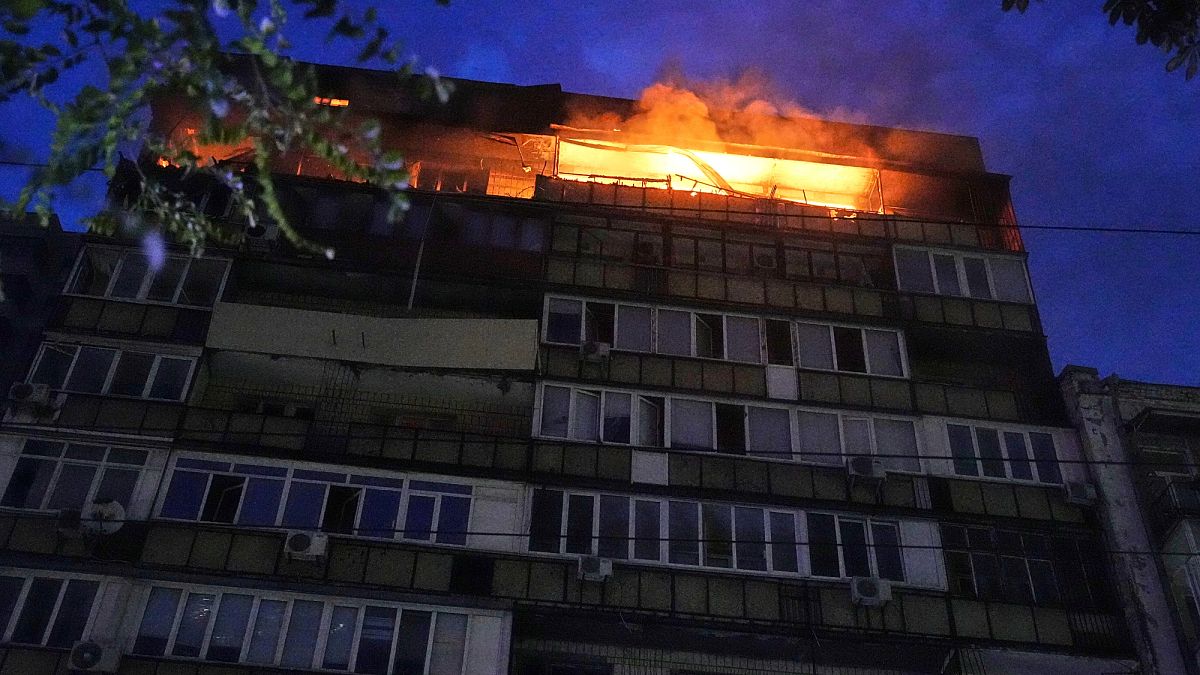

In recent days, regions of Europe and the Middle East have experienced significant upheaval, with numerous developments demanding both international attention and intervention. One of the most severe incidents involves waves of missile and drone attacks on Ukraine’s capital, Kyiv. These events underscore a broader conflict narrative that reverberates across Europe and beyond, impacting political landscapes and human lives.
Kyiv has been at the forefront of a large-scale Russian offensive characterized by intense aerial bombardments aiming to deplete Ukraine’s aerial defenses. The most recent assault has tragically resulted in two lives lost and numerous others injured, as the city endured another night of reverberating explosions. Residents were urged to find immediate shelter, with many seeking refuge in underground metro stations. The resilience of Kyiv’s populace remains evident, as they confront these challenges with a spirit of unity and determination.
This escalation in military aggression aligns with broader geopolitical tensions, highlighted by a ruling from the European Court of Human Rights. The court concluded that Russia violated international law, specifically noting its involvement in the tragic downing of Malaysia Airlines Flight MH17. This decision reinforces a call for accountability, emphasizing the necessity for adherence to international law and highlighting the enduring impact of unresolved justice for affected families and communities.
Meanwhile, in Turkey, President Recep Tayyip Erdoğan finds himself navigating a challenging political terrain. In an effort to solidify his leadership, Erdoğan is contemplating a risky rapprochement with the Kurdish community, historically marked by mutual distrust and intermittent conflict. The prospects of such a political gamble carry significant implications for stability within the region, urging a focus on dialogue and understanding in pursuing peace and cooperation.
Turning to Ukraine’s internal developments, recent decisions around the appointment of a new head for the Bureau of Economic Security have stirred discourse with Western allies. As Ukrainian officials head to an important aid conference, the selection process for this key position has become a point of contention. These developments underscore the complexities of governance and international partnerships, fostering a need for mutual respect and collaboration in tackling economic challenges.
In the Middle East, the humanitarian situation in Gaza remains dire, as aid workers grapple with the aftermath of mass casualty incidents at food distribution sites. The persistent threat to civilians seeking fundamental necessities, such as food, highlights the urgent need for humanitarian intervention and the prioritization of civilian safety and dignity amid conflict.
In each of these regions, the interconnectedness of political decision-making, human rights, and humanitarian needs is profoundly apparent. The challenges they face call for sustained international attention, with a shared commitment to fostering peace, upholding justice, and ensuring support for those affected by conflict.
The prevailing conditions across these key areas remind us of the importance of calm and deliberate action in addressing complex international situations. Dialogue remains essential, as nations strive to navigate these challenges with resilience and compassion to pave the way for a more stable and harmonious future.
Source: {link}
